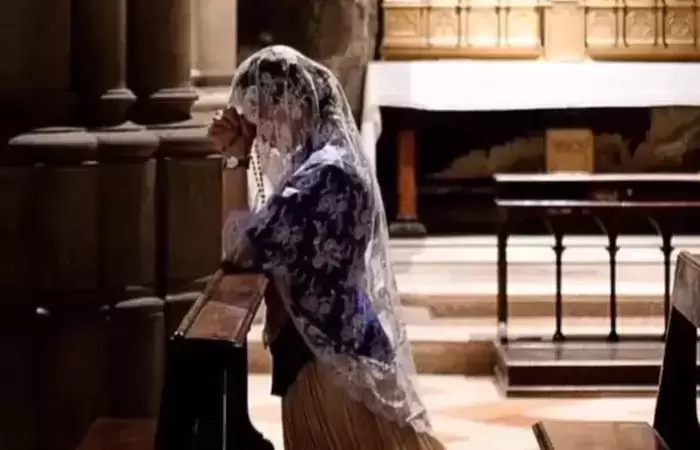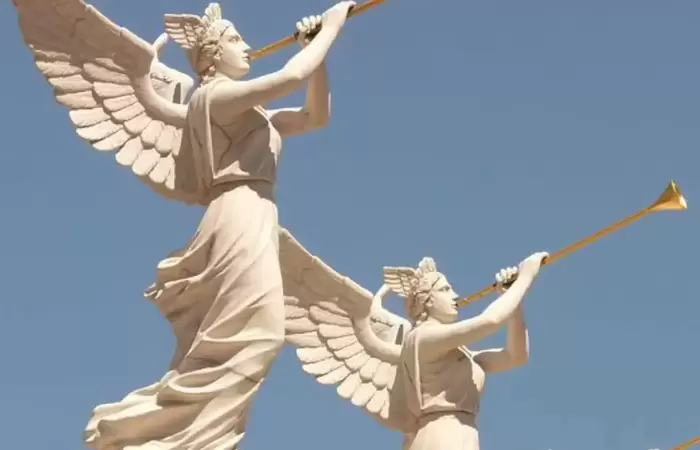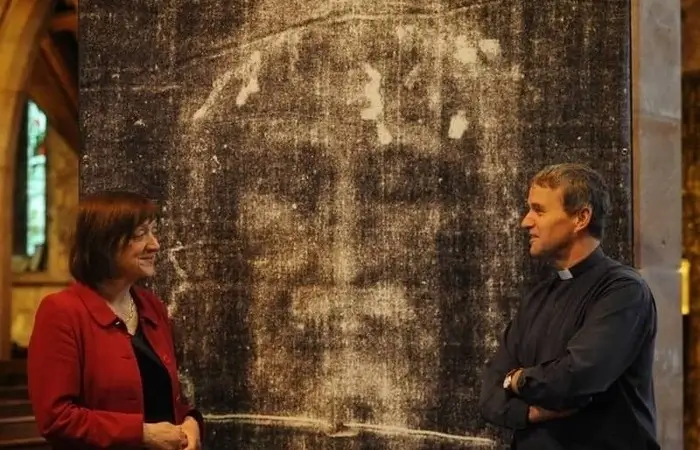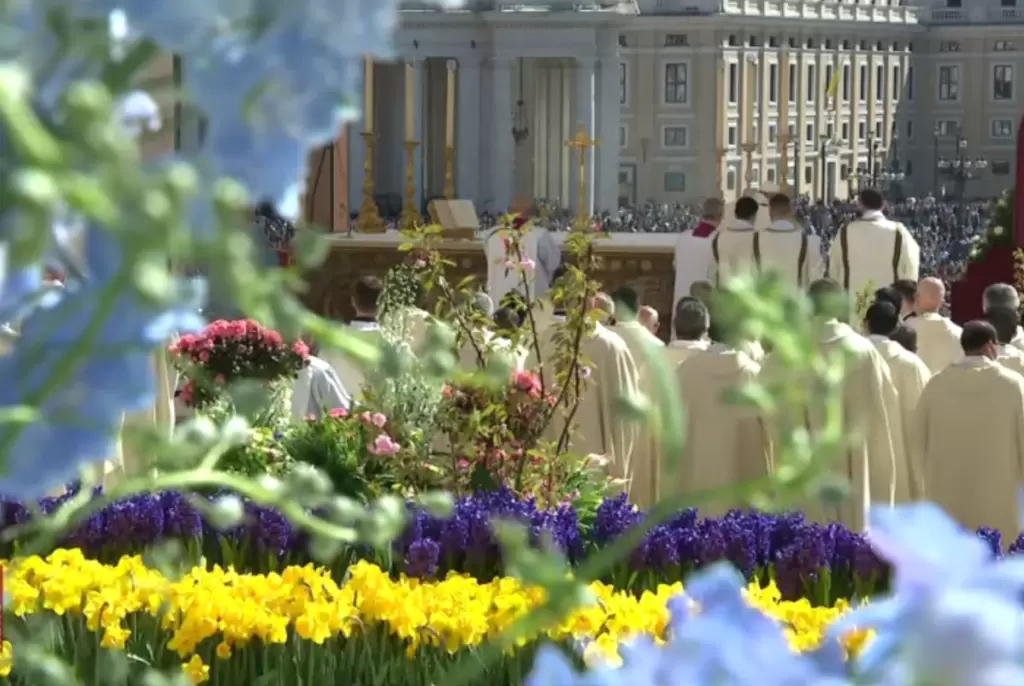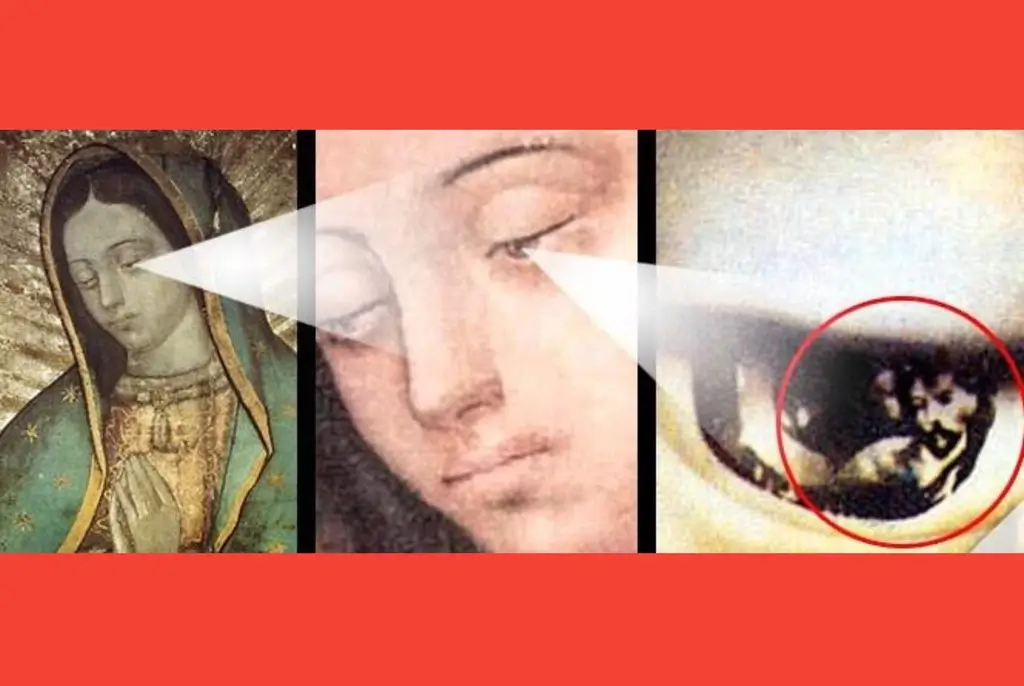Incarnationis Mysterium
The birth of Jesus at Bethlehem is not an event which can be consigned to the past. The whole of human history in fact stands in reference to him: our own time and the future of the world are illumined by his presence. He is the Living One, who is, who was and who is to come (Rev 1:4). Before him every knee must bend, in the heavens, on earth and under the earth, and every tongue proclaim that he is Lord (cf. Phil 2:10-11). In the encounter with Christ, every man discovers the mystery of his own life.
Jesus is the genuine newness which surpasses all human expectations and such he remains for ever, from age to age. The Incarnation of the Son of God and the salvation which he has accomplished by his Death and Resurrection are therefore the true criterion for evaluating all that happens in time and every effort to make life more human.
Jesus Christ, the second person of the Trinity, also known as God the Son or the Logos (Koine Greek for “word”), “was made flesh”[1] by being conceived in the womb of a woman, the Virgin Mary, also known as the Theotokos (Greek for “God-bearer”). The doctrine of the incarnation, then, entails that Jesus is fully God and fully human.
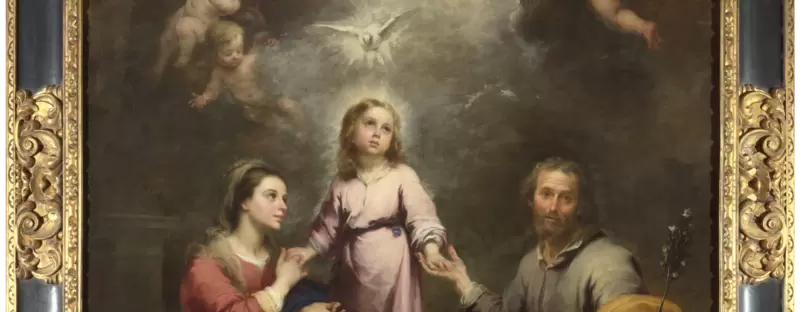
Francis of Assisi’s brotherhood and sisterhood of all creatures is a sacramental vision and understanding that every creature, including oneself, is a sacrament of the love of God. The recognition of the other as a creature and, therefore; that which exists because it is loved by God cannot occur where the other is regarded as “it.”
He distinctively permits and actually concurs with every exercise of thinking, loving, or acting. This influx and concourse of God, as theologians style it, ought to give to us all our lives long the sensation of being in an awful sanctuary, where every sight and sound is one of worship. Everything is penetrated with God….” (The Creator and the Creature, Catholic theologian, F.W. Faber).
It is said of Saint John of the Cross, the Church’s greatest mystical theologian, that he beheld “in creation a trace of the divine beauty, power, and loving wisdom, [so that he] could not easily resist the enchantment of nature.”
Faith and knowledge of the order of creation are necessary to understand the world, as well as a range of subject areas such as arts and science, the economy and politics. We are never really outside of God nor He outside of us.
On the Incarnation by Athanasius of Alexandria
“and as they had at the beginning come into being out of non-existence, so were they now on the way to returning, through corruption, to non-existence again. The presence and love of the Word had called them into being; inevitably, therefore when they lost the knowledge of God, they lost existence with it; for it is God alone Who exists, evil is non-being, the negation and antithesis of good.”
“For by nature human beings are afraid of death and of the dissolution of the body. But this is most amazing, that one who has put on the faith of the cross scorns even things according to nature, and is not afraid of death because of Christ.”
“We will begin then with the creation of the world with God its Maker, for the first fact that you must grasp is this: The renewal of Creation has been wrought by the Self-Same Word who made it in the beginning. There is thus no inconsistency between creation and salvation for the One Father has employed the same Agent for both works affecting the salvation of the world through the same Word who made it in the beginning.”
“The Saviour of us all, the Word of God, in His great love took to Himself a body and moved as Man among men, meeting their senses, so to speak, half way. He became Himself an object for the senses, so that those who were seeking God in sensible things might apprehend the Father through the works which He, the Word of God, did in the body.”
“What, then, was God to do? What else could He possibly do, being God, but renew His Image in mankind, so that through it men might once more come to know Him? And how could this be done save by the coming of the very Image Himself, our Savior Jesus Christ? Men could not have done it, for they are only made after the Image; nor could angels have done it, for they are not the images of God. The Word of God came in His own Person, because it was He alone, the Image of the Father Who could recreate man made after the Image.”
He, the Life of all, our Lord and Saviour, did not arrange the manner of his own death lest He should seem to be afraid of some other kind. No. He accepted and bore upon the cross a death inflicted by others, and those other His special enemies, a death which to them was supremely terrible and by no means to be faced; and He did this in order that, by destroying even this death, He might Himself be believed to be the Life, and the power of death be recognised as finally annulled. A marvellous and mighty paradox has thus occurred, for the death which they thought to inflict on Him as dishonour and disgrace has become the glorious monument to death’s defeat.
Even on the cross He did not hide Himself from sight; rather, He made all creation witness to the presence of its Maker.
The Self-revealing of the Word is in every dimension – above, in creation; below, in the Incarnation; in the depth, in Hades; in the breadth, throughout the world. All things have been filled with the knowledge of God.
Dead men cannot take effective action; their power of influence on others lasts only till the grave. Deeds and actions that energise others belong only to the living. Well, then, look at the facts in this case. The Saviour is working mightily among men, every day He is invisibly persuading numbers of people all over the world, both within and beyond the Greek-speaking world, to accept His faith and be obedient to His teaching. Can anyone, in face of this, still doubt that He has risen and lives, or rather that He is Himself the Life? Does a dead man prick the consciences of men…?
The Lord did not come to make a display. He came to heal and to teach suffering men. For one who wanted to make a display the thing would have been just to appear and dazzle the beholders. But for Him Who came to heal and to teach the way was not merely to dwell here, but to put Himself at the disposal of those who needed Him, and to be manifested according as they could bear it, not vitiating the value of the Divine appearing by exceeding their capacity to receive it.
The body of the Word, then, being a real human body, in spite of its having been uniquely formed from a virgin, was of itself mortal and, like other bodies, liable to death. But the indwelling of the Word loosed it from this natural liability, so that corruption could not touch it. Thus is happened that two opposite marvels took place at once: the death of all was consummated in the Lord’s body; yet, because the Word was in it, death and corruption were in the same act utterly abolished.
For the Lord touched all parts of creation, and freed and undeceived them all from every deceit.
In ancient times before the divine sojourn of the Savior took place, even to the saints death was terrible; all wept for the dead as though they perished. But now that the Savior has raised his body, death is no longer terrible; for all who believe in Christ trample on it as it were nothing and choose rather to die than deny their faith in Christ. And that devil that once maliciously exulted in death, now that its pains were loosed, remained the only one truly dead.
You know how it is when some great king enters a large city and dwells in one of its houses; because of his dwelling in that single house, the whole city is honored, and enemies and robbers cease to molest it. Even so is it with the King of all; He has come into our country and dwelt in one body amidst the many, and in consequence the designs of the enemy against mankind have been foiled and the corruption of death, which formerly held them in its power, has simply ceased to be. For the human race would have perished utterly had not the Lord and Savior of all the Son of God, come among us to put an end to death.
For the Word, realizing that in no other way would the corruption of human beings be undone except, simply, by dying, yet being immortal and the Son of the Father of the Word was not able to die, for this reason he takes to himself a body capable of death, in order that it, participating in the Word who is above all, might be sufficient for death on behalf of all, and through the indwelling Word would remain incorruptible, and so corruption might henceforth cease from all by the grace of the resurrection.
For of what use is existence to the creature if it cannot know its Maker? How could men be reasonable beings if they had no knowledge of the Word and Reason of the Father, through Whom they had received their being? They would be no better than the beasts, had they no knowledge save of earthly things; and why should God have made them at all, if He had not intended them to know Him? But, in fact, the good God has given them a share in His own Image, that is, in our Lord Jesus Christ, and has made even themselves after the same Image and Likeness. Why? Simply in order that through this gift of Godlikeness in themselves they may be able to perceive the Image Absolute, that is the Word Himself, and through Him to apprehend the Father; which knowledge of their Maker is for men the only really happy and blessed life.
Death has become like a tyrant who has been completely conquered by the legitimate monarch; bound hand and foot the passers-by sneer at him, hitting him and abusing him, no longer afraid of his cruelty and rage, because of the king who has conquered him. So has death been conquered and branded for what it is by the Savior on the cross. It is bound hand and foot, all who are in Christ trample it as they pass and as witnesses to Him deride it, scoffing and saying, “O Death, where is thy victory? O Grave, where is thy sting?
The Savior is working mightily among men, every day He is invisibly persuading numbers of people all over the world, both within and beyond the Greek-speaking world, to accept His faith and be obedient to His teaching. Can anyone, in face of this, still doubt that He has risen and lives, or rather that He is Himself the Life? Does a dead man prick the consciences of men, so that they throw all the traditions of their fathers to the winds and bow down before the teaching of Christ?
“repentance recall men from what is according to their nature; all that it does is to make them cease from sinning. Had it been a case of a trespass only, and not of a subsequent corruption, repentance would have been well enough; but when once transgression had begun men came under the power of the corruption proper to their nature and were bereft of the grace which belonged to them as creatures in the Image of God.”
The presence and love of the Word had called them into being; inevitably, therefore when they lost the knowledge of God, they lost existence with it; for it is God alone Who exists, evil is non-being, the negation and antithesis of good.
Even the very creation broke silence at His behest and, marvelous to relate, confessed with one voice before the cross, that monument of victory, that He Who suffered thereon in the body was not man only, but Son of God and Savior of all. The sun veiled his face, the earth quaked, the mountains were rent asunder, all men were stricken with awe. These things showed that Christ on the cross was God, and that all creation was His slave and was bearing witness by its fear to the presence of its Master.
All the disciples of Christ despise death; they take the offensive against it and, instead of fearing it, by the sign of the cross and by faith in Christ trample on it as on something dead. Before the divine sojourn of the Savior, even the holiest of men were afraid of death, and mourned the dead as those who perish. But now that the Savior has raised His body, death is no longer terrible, but all those who believe in Christ tread it underfoot as nothing, and prefer to die rather than to deny their faith in Christ, knowing full well that when they die they do not perish, but live indeed, and become incorruptible through the resurrection.
There were thus two things which the Savior did for us by becoming Man. He banished death from us and made us anew; and, invisible and imperceptible as in Himself He is, He became visible through His works and revealed Himself as the Word of the Father, the Ruler and King of the whole creation.
He, the Life of all, our Lord and Savior, did not arrange the manner of his own death lest He should seem to be afraid of some other kind. No. He accepted and bore upon the cross a death inflicted by others, and those others His special enemies, a death which to them was supremely terrible and by no means to be faced; and He did this in order that, by destroying even this death, He might Himself be believed to be the Life, and the power of death be recognized as finally annulled.
Thus, taking a body like our own, because all our bodies were liable to the corruption of death, He surrendered His body to death instead of all, and offered it to the Father. This He did out of sheer love for us, so that in His death all might die, and the law of death thereby be abolished because, having fulfilled in His body that for which it was appointed, it was thereafter voided of its power for men. This He did that He might turn again to incorruption men who had turned back to corruption, and make them alive through death by the appropriation of His body and by the grace of His resurrection. Thus He would make death to disappear from them as utterly as straw from fire.
Thus it happened that two opposite marvels took place at once: the death of all was consummated in the Lord’s body; yet, because the Word was in it, death and corruption were in the same act utterly abolished.
It is, indeed, in accordance with the nature of the invisible God that He should be thus known through His works; and those who doubt the Lord’s resurrection because they do not now behold Him with their eyes, might as well deny the very laws of nature. They have ground for disbelief when works are lacking; but when the works cry out and prove the fact so clearly, why do they deliberately deny the risen life so manifestly shown? Even if their mental faculties are defective, surely their eyes can give them irrefragable proof of the power and Godhead of Christ. A blind man cannot see the sun, but he knows that it is above the earth from the warmth which it affords; similarly, let those who are still in the blindness of unbelief recognize the Godhead of Christ and the resurrection which He has brought about through His manifested power in others.
The things which they, as men, rule out as impossible, He plainly shows to be possible; that which they deride as unfitting, His goodness makes most fit; and things which these wiseacres laugh at as “human” He by His inherent might declares divine. Thus by what seems His utter poverty and weakness on the cross He overturns the pomp and parade of idols, and quietly and hiddenly wins over the mockers and unbelievers to recognise Him as God.
His approach to the Miracles is badly needed today, for it is the final answer to those who object to them as “arbitrary and meaningless violations of the laws of Nature.
“that devil who of old wickedly exulted in death, now that the pains of death are loosed, he alone it is who remains truly dead. There is proof of this too; for men who, before they believe in Christ, think death horrible and are afraid of it, once they are converted despise it so completely that they go eagerly to meet it, and themselves become witnesses of the Savior’s resurrection from it. Even children hasten thus to die, and not men only, but women train themselves by bodily discipline to meet it. So weak has death become that even women, who used to be taken in by it, mock at it now as a dead thing robbed of all its strength. Death has become like a tyrant who has been completely conquered by the legitimate monarch; bound hand and foot the passers-by sneer at him, hitting him and abusing him, no longer afraid of his cruelty and rage, because of the king who has conquered him. So has death been conquered and branded for what it is by the Savior on the cross. It is bound hand and foot, all who are in Christ trample it as they pass and as witnesses to Him deride it, scoffing and saying, “O Death, where is thy victory? O Grave, where is thy sting?” (1 Corinthians 15:55). (28) Is this a slender proof of the impotence of death, do you think? Or is it a slight indication of the Savior’s victory over it, when boys and young girls who are in Christ look beyond this present life and train themselves to die?
One cannot possibly understand the teaching of the saints unless one has a pure mind and is trying to imitate their life. Anyone who wants to look at sunlight naturally wipes his eye clear first, in order to make, at any rate, some approximation to the purity of that on which he looks; and a person wishing to see a city or country goes to the place in order to do so. Similarly, anyone who wishes to understand the mind of the sacred writers must first cleanse his own life, and approach the saints by copying their deeds. Thus united to them in the fellowship of life, he will both understand the things revealed to them by God and, thenceforth escaping the peril that threatens sinners in the judgment, will receive that which is laid up for the saints in the kingdom of heaven
Men had turned from the contemplation of God above, and were looking for Him in the opposite direction, down among created things and things of sense. The Savior of us all, the Word of God, in His great love took to Himself a body and moved as Man among men, meeting their senses, so to speak, half way. He became Himself an object for the senses, so that those who were seeking God in sensible things might apprehend the Father through the works which He, the Word of God, did in the body. Human and human minded as men were, therefore, to whichever side they looked in the sensible world they found themselves taught the truth. Were they awe-stricken by creation? They beheld it confessing Christ as Lord. Did their minds tend to regard men as Gods? The uniqueness of the Savior’s works marked Him, alone of men, as Son of God. Were they drawn to evil spirits? They saw them driven out by the Lord and learned that the Word of God alone was God and that the evil spirits were not gods at all. Were they inclined to heroworship and the cult of the dead? Then the fact that the Savior had risen from the dead showed them how false these other deities were, and that the Word of the Father is the one true Lord, the Lord even of death. For this reason was He both born and manifested as Man, for this He died and rose, in order that, eclipsing by His works all other human deeds, He might recall men from all the paths of error to know the Father. As He says Himself, “I came to seek and to save that which was lost
For if a King constructed a house or a city, and it is attacked by bandits because of the carelessness of its inhabitants, he in no way abandons it, but avenges and saves it as his own work, having regard not for the carelessness of the inhabitants but for his own honor. All the more so, the God Word of the all-good-Father did not neglect the race of human beings, created by himself, which was going to corruption, but he blotted out the death which had occurred through the offering of his own body, and correcting their carelessness by his own teaching, restoring every aspect of human beings by his own power.
Quick Learning
Why did God become human?
As Aquinas begins to provide an answer to this question, what unfolds is an exploration of the very logic of the redemption itself. As such, he illustrates in a particularly beautiful way what theology is at its best: a study in faith of the mystery of the divine wisdom itself.
wisdom was hidden in things from the foundation of the world
Become Part of Catholic Principle to Further Your Knowledge.


